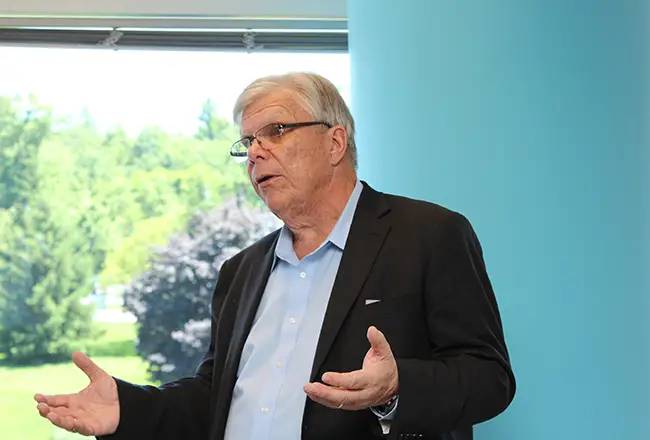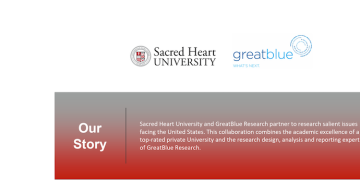Walking through the nearly finished labs of the new research offices for Ascensia Diabetes Care in Valhalla, Rick Stadterman said one thing he wanted to be sure of was that the labs weren”™t too small.
Within the roomy labs of the company”™s 65,000-square-foot space at 100 Summit Lake Drive, which includes a separate floor of lab and clinical space, Ascensia”™s research teams should have plenty of room.
Stadterman is the global head of research and development for Ascensia, an international producer of diabetes care devices that plans to eventually employ about 160 people in Westchester County. The company was still settling in to its 11-year lease for two-floors at the SL Green-owned building when Stadterman gave the Business Journal a tour at the end of June. Ascensia”™s main product is its Contour line of blood glucose monitoring systems. The company is one of the top four worldwide producers of glucose monitors and strips.

Ascensia global corporate headquarters are in Switzerland, its products are manufactured in Japan, and its U.S corporate headquarters is in Parsippany, New Jersey. But the company will focus its global research and development efforts in the Valhalla office. The space includes a floor of offices and conference rooms beneath a floor of wet and mechanical labs, including a separate clinical trials space that will open soon.
Despite the company”™s global presence, the name Ascensia is not quite a household name. That”™s partly because it”™s a fairly new one. The company was formed in 2016, when Bayer sold its diabetes care business for $1.15 billion to Panasonic Healthcare Holdings (now PHC Holdings), a business spun out of Panasonic Corp. and backed by the private equity firm KKR & Co. LP.
PHC Holdings owns two related companies: Ascensia Diabetes Care, which develops and markets the diabetes care products, and PHC, which manufactures the meters and other products sold by Ascensia.
The Contour line includes the blood test strips and monitors used by people diagnosed with type 1 and type 2 diabetes to measure the level of glucose in their blood. The company”™s latest product line, Contour Next One, syncs user results to a mobile app via Bluetooth. The app, Contour Diabetes, provides users feedback through algorithms that analyze and find patterns in user results.
“Say you”™re sugar has been low every afternoon for the past four weeks, would you like to look into this?” Stadterman explains. “And then you can start going through some queries.”
The idea is that by providing what they describe as actionable information, the app can help people better manage their condition. If a person”™s glucose levels are high every Tuesday, the app can highlight that and ask a series of prompts to identify possible causes.
“Is every Tuesday your pizza lunch with the buddies?” Stadterman provides as an example.
The extra level of information is especially important for a disease such as diabetes, where most of the daily care is managed by the people themselves, not doctors.
Stadterman said the goal of the business is to go beyond simple measurement by “trying to move patients toward behavior change.”
It”™s the modern form of a product that Ascensia has been developing for more than 70 years, by its reckoning, albeit through different companies and ownerships. The company traces its roots to the 1940s, when Ames, part of Miles Laboratories in Elkhart, Indiana, began production of diagnostic strips that measured glucose in urine. It would take another decade before Ames developed Dextrostix, the first test strip for glucose levels in blood. In 1977, the German company Bayer greatly expanded its U.S. presence by acquiring Miles, which also produced and developed Alka Seltzer.
Bayer”™s diabetes care unit included a research and operations office in Tarrytown. That”™s part of how Stadterman said the company chose Westchester County for its global research headquarters. But he added that the New York City region is one of the best in the country for life sciences and medical device talent.
“There”™s an infrastructure of people, both technical and engineering, scientific and clinical, people within the area that we can draw on as we hire more people,” he said, adding that the region”™s universities can provide potential interns and future employees as well.
The company has about 80 employees at the Valhalla offices, with plans to reach 150. Another 10 to 15 employees will also work at an office in what Stadterman calls a software incubator that will build on its app and other online offerings.
Ascensia is also working to build up its network of local patients it can call on for clinical trials. The trials will focus mostly on testing the accuracy of the company”™s blood glucose sensors, as well as the user-friendliness of its meters.
In the press release announcing the deal and the company”™s creation, Ascensia noted the World Health Organization estimates nearly 350 million people live with diabetes globally and rates of diagnoses are expected to rise. But while the number of people who require the type of products Ascensia makes is expected to grow, the industry has faced pressures from insurers and state health care providers offering lower reimbursement rates for products, as Bayer noted in its 2015 annual report.
KKR”™s purchase of Bayer”™s diabetes care division created what Stadterman said was the “perfect combination.” KKR was able to essentially pair the Bayer division with Panasonic Healthcare, which was already manufacturing the Contour devices Bayer Diabetes Care developed and marketed.
“We have the best of both worlds,” Stadterman said. “A commercial and R&D side, combined with manufacturing side, in one company.”
And as the company”™s researchers continue to refine Ascensia”™s products for 21st century demands, those efforts will be led from Valhalla.
“We”™re going to be here for a while,” Stadterman said. “And I think there”™s a great opportunity for us to grow.”
















